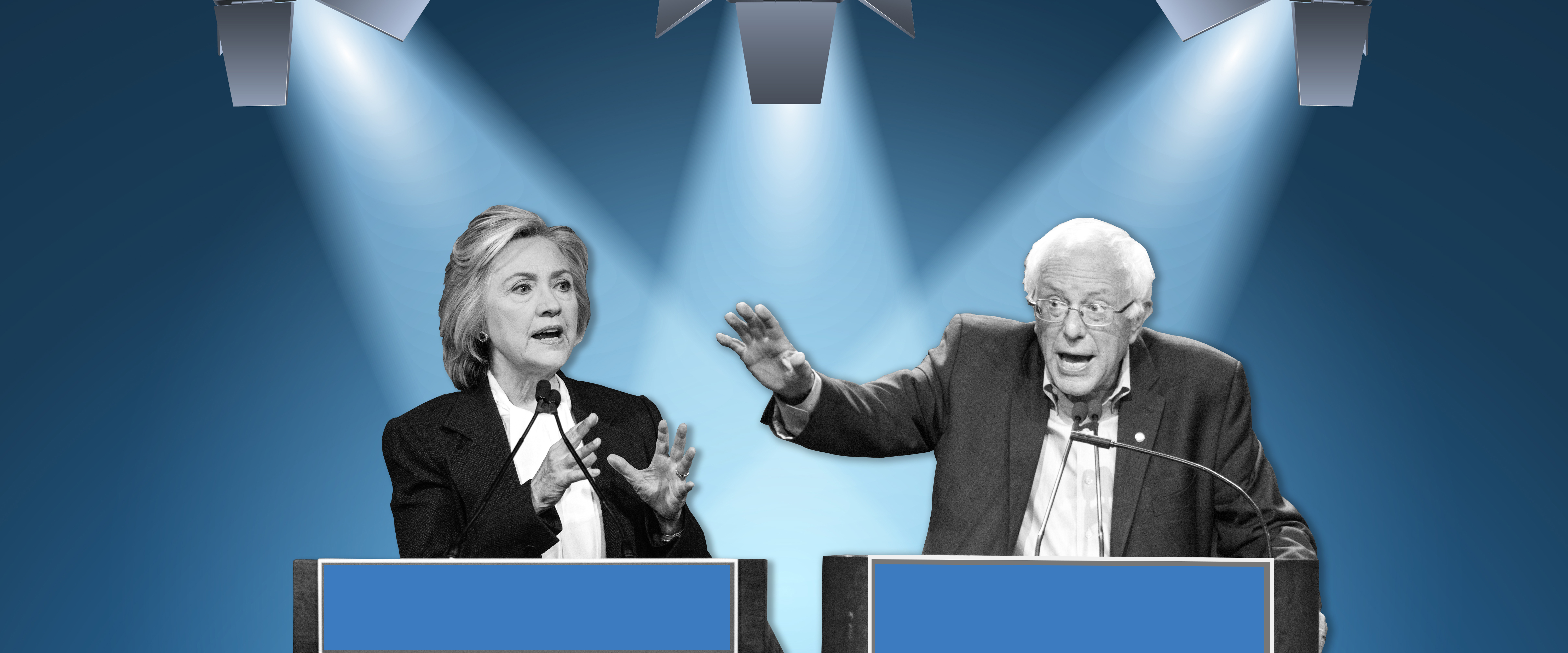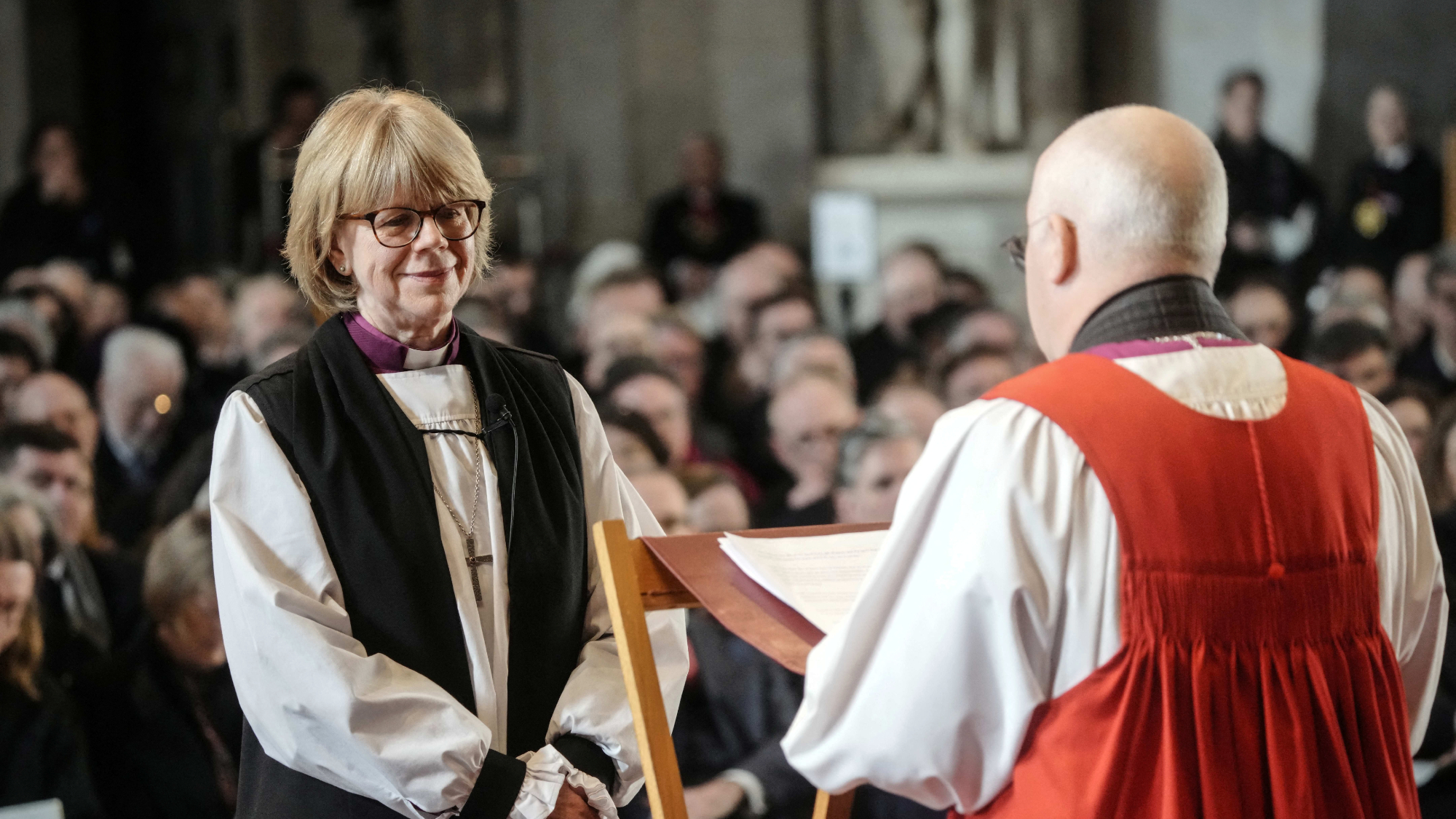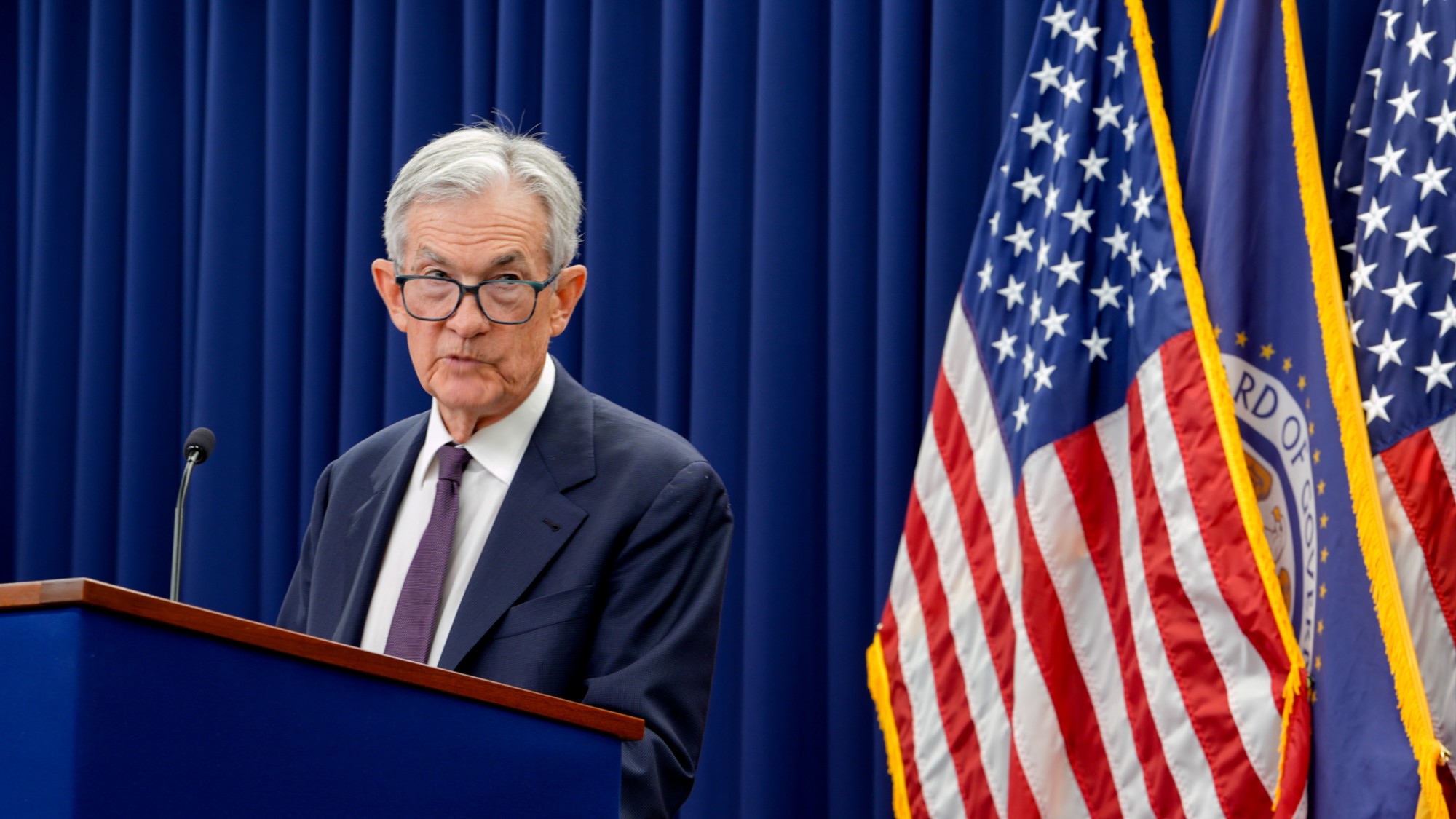Why 2016 Democrats need more debates
Even Clinton would benefit


The Democrats have six presidential primary debates scheduled over the next several months. In any sane nation, that would be a gross excess of time and money to spend on political campaigning.
But here in the good old U.S.A., there is good reason to think they should have more, and soon. Here's why.
1. It would stop Republicans from dominating 2016 coverage. As Greg Sargent argues, the extended primary schedule is actually proving fairly valuable to Republicans. They are completely dominating the overall campaign coverage, and while a lot of the attention is negative due to half the candidates being strap-chewing lunatics, it's still building a sense of excitement. Plus, it's allowing the party to hash out its differences, in a way that might even weed out the Trump/Carson/Fiorina crowd. No small gain for a party as cracked as that one.
The Week
Escape your echo chamber. Get the facts behind the news, plus analysis from multiple perspectives.

Sign up for The Week's Free Newsletters
From our morning news briefing to a weekly Good News Newsletter, get the best of The Week delivered directly to your inbox.
From our morning news briefing to a weekly Good News Newsletter, get the best of The Week delivered directly to your inbox.
Democratic debates would have many of those advantages and few of the downsides. None of the candidates are a tenth as weird as Trump — meaning probably a bit less attention and coverage, but of a much better quality. With Bernie Sanders on stage, it wouldn't be a lot of boring agreement either — the many strong policy differences between him and the DNC crowd would make for a substantive debate (and perhaps even convince Clinton to adopt the popular policies that would serve her best in the general election). Sanders has even scrupulously refused to attack Clinton personally! What's not to like?
2. It would give the political press something to talk about besides the endless, pointless Clinton email story, as Jamelle Bouie notes. As is now beyond obvious, the mainstream press seriously hates Clinton, and has effectively decided that this is their best shot of ruining her career. Ron Fournier, dean of goober DC centrism, has worked himself into such a froth trying to Get Clinton on emails that he recently committed grotesque errors of fact, as Kevin Drum carefully documents.
But for that same reason, Clinton basically refuses to talk to the press outside of a handful of heavily-controlled events, which forecloses one of the few things that might distract the media from the email story. A debate, however, is another of those — a setting that's formal enough that it wouldn't turn into a Clinton witch-hunt, but would provide enough theater to get the Fournierites off her case, at least for a week or two.
3. Clinton could probably use the practice. I still remember the first presidential debate in 2012, when President Obama was roundly defeated by Mitt Romney. Obama looked like a very powerful man who was not used to being sharply challenged, and came off as simultaneously haughty and unsure of himself. Hillary Clinton is a smart, capable person, but sycophantic courtier syndrome is a real thing, and a square debate on equal footing is one of the few ways someone of Clinton's fame and standing can work against it.
A free daily email with the biggest news stories of the day – and the best features from TheWeek.com
It's also long since time she started actually campaigning. She's been on a mad fundraising schedule for the whole campaign, probably trying to match Jeb Bush, who is far ahead in the money race with most of the vast conservative plutocracy behind him. But Bush's atrocious performance so far in the Republican primary — he is still not even breaking double digits in the polls — is a sharp reminder that at the presidential level, more money is little guarantee of success.
The only real argument against more debates is that the election cycle is already too long. Sheesh, why do we need more debates — we've got six already? But like it or not, this is how the game is played now. The electoral death march through the nomination and general election is how the parties polish their message, hash out which policies are favored, and unite around a candidate. In a country as huge as the U.S., some of that extra time might even be a good thing, to allow for greater need for ideas to diffuse.
Democratic National Committee chair Debbie Wasserman Schultz, a certain Clinton supporter, has declared that there will only be six debates, period, and that any candidate who participates in non-DNC debates will get kicked out of the official ones. It smells very much like a classic Clinton hack's effort to protect her from criticism. But the only person she's hurting with that stance is the Democratic frontrunner herself.
Clinton needs to get out there and start mixing it up.
Ryan Cooper is a national correspondent at TheWeek.com. His work has appeared in the Washington Monthly, The New Republic, and the Washington Post.
-
 How Manchesterism could change the UK
How Manchesterism could change the UKThe Explainer The idea involves shifting a centralized government to more local powers
-
 Church of England instates first woman leader
Church of England instates first woman leaderSpeed Read Sarah Mullally became the 106th Archbishop of Canterbury
-
 Fed holds rates steady, bucking Trump pressure
Fed holds rates steady, bucking Trump pressureSpeed Read The Federal Reserve voted to keep its benchmark interest rate unchanged
-
 The billionaires’ wealth tax: a catastrophe for California?
The billionaires’ wealth tax: a catastrophe for California?Talking Point Peter Thiel and Larry Page preparing to change state residency
-
 Bari Weiss’ ‘60 Minutes’ scandal is about more than one report
Bari Weiss’ ‘60 Minutes’ scandal is about more than one reportIN THE SPOTLIGHT By blocking an approved segment on a controversial prison holding US deportees in El Salvador, the editor-in-chief of CBS News has become the main story
-
 Has Zohran Mamdani shown the Democrats how to win again?
Has Zohran Mamdani shown the Democrats how to win again?Today’s Big Question New York City mayoral election touted as victory for left-wing populists but moderate centrist wins elsewhere present more complex path for Democratic Party
-
 Millions turn out for anti-Trump ‘No Kings’ rallies
Millions turn out for anti-Trump ‘No Kings’ ralliesSpeed Read An estimated 7 million people participated, 2 million more than at the first ‘No Kings’ protest in June
-
 Ghislaine Maxwell: angling for a Trump pardon
Ghislaine Maxwell: angling for a Trump pardonTalking Point Convicted sex trafficker's testimony could shed new light on president's links to Jeffrey Epstein
-
 The last words and final moments of 40 presidents
The last words and final moments of 40 presidentsThe Explainer Some are eloquent quotes worthy of the holders of the highest office in the nation, and others... aren't
-
 The JFK files: the truth at last?
The JFK files: the truth at last?In The Spotlight More than 64,000 previously classified documents relating the 1963 assassination of John F. Kennedy have been released by the Trump administration
-
 'Seriously, not literally': how should the world take Donald Trump?
'Seriously, not literally': how should the world take Donald Trump?Today's big question White House rhetoric and reality look likely to become increasingly blurred
